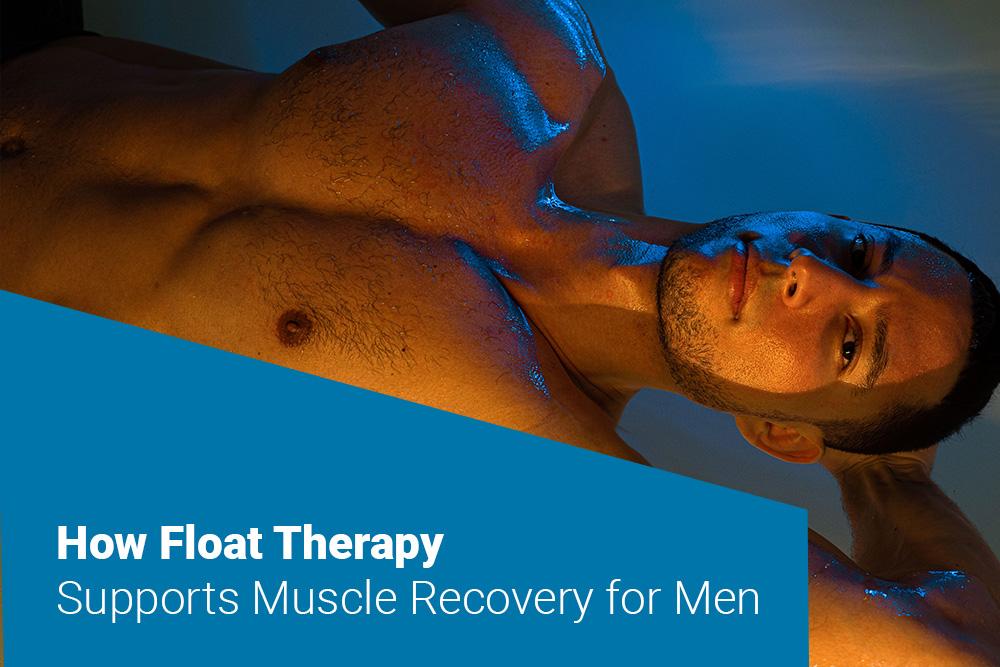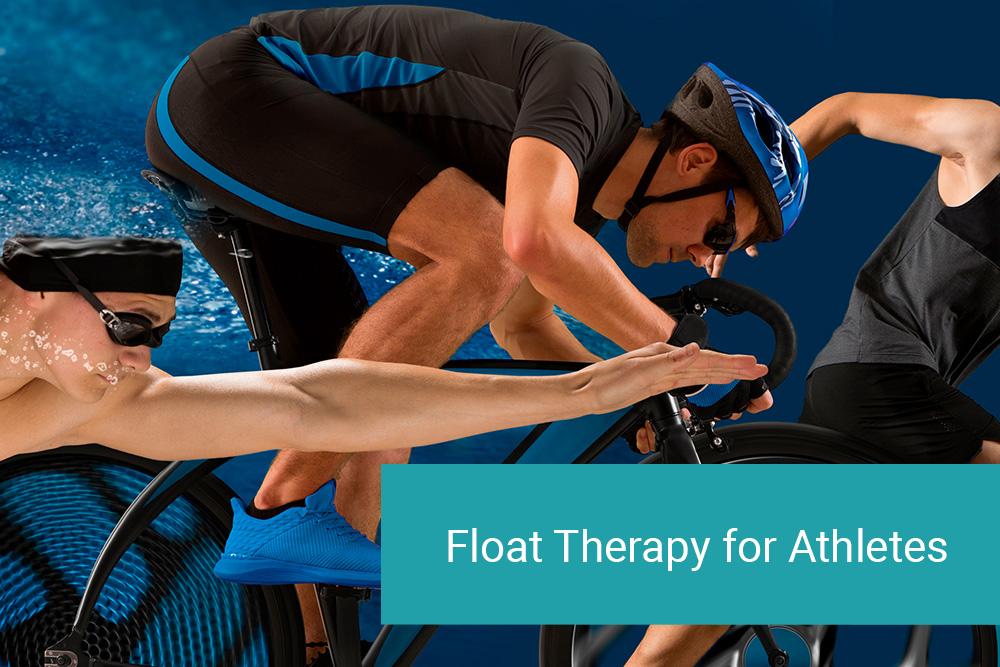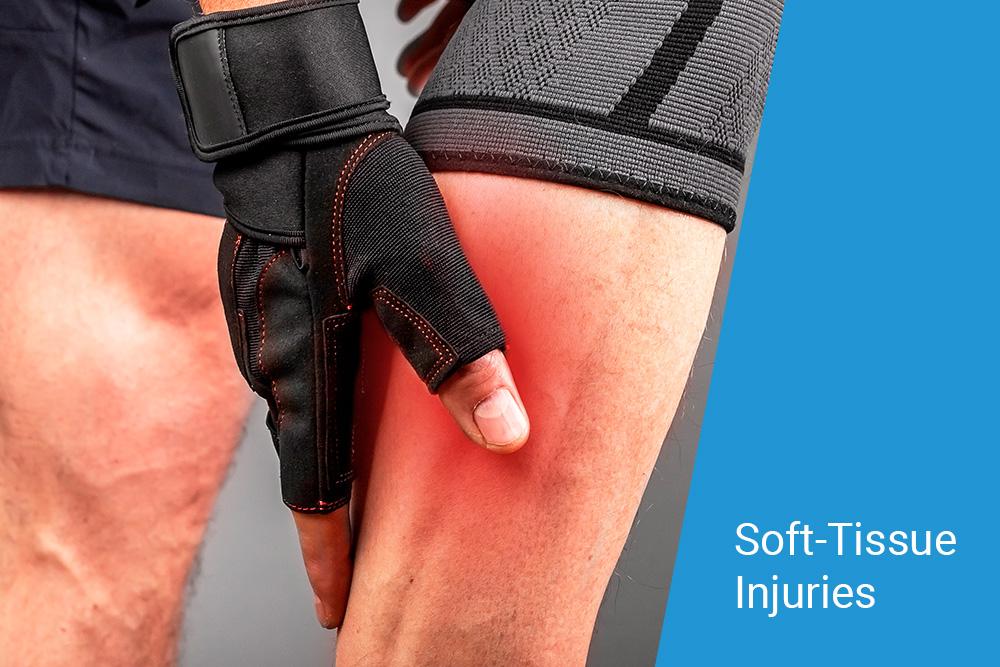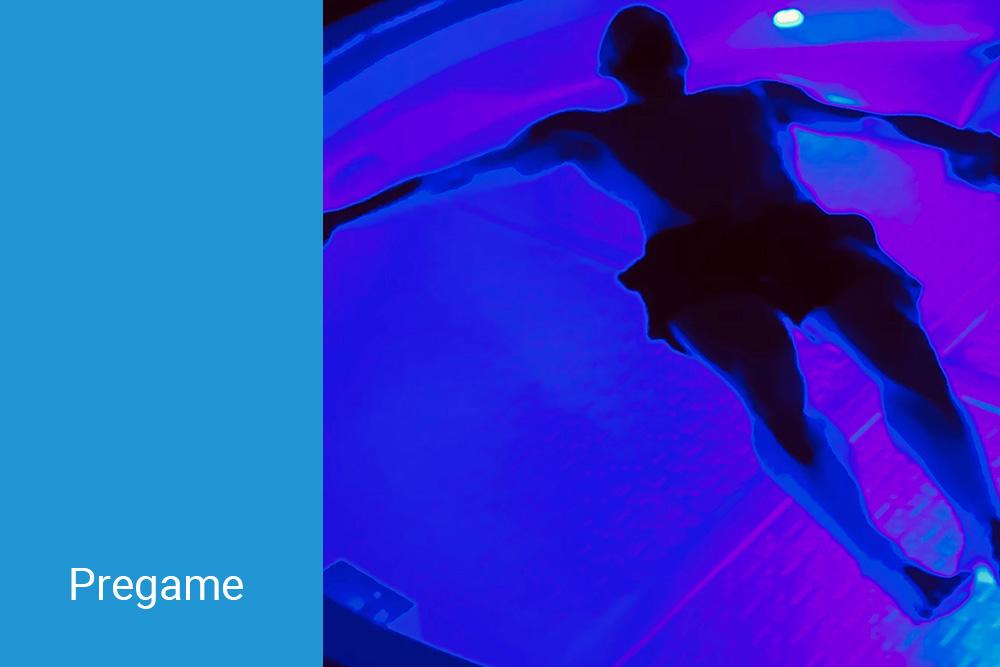
Muscle recovery is a critical part of any athletic training regimen, as muscle injuries can sideline amateur and professional male and female athletes. However, on the whole, men typically see a far greater number of muscle injuries than women. This is simply because men tend to engage in much more vigorous types of exercises and sports, such as more intense weight training programs and full-contact sports. While they also participate in these activities, women typically do not engage in the same numbers or at the same intensity level as men.
While several therapies have been devised to promote muscle recovery for men and women, some treatments have proven much more effective than others. Research is finding that floating is showing promising results in increasing workout performance, improving concentration as well as shortening recovery time.
Float therapy, also called sensory deprivation therapy or just “floating,” is rapidly becoming a popular choice for professional and amateur athletes around the world for recovery from muscle injuries. However, floating is not just a part of a rehabilitation regimen but also a warm-up activity to relax and loosen up stiff muscles and arthritic joints before competition and workouts.
Floating occurs in a fully enclosed or open tank in a light and soundproof room. The tank is filled with water heated to body temperature and Epsom salts to a saturation level, creating a neutral buoyancy. This allows your body to float effortlessly in a blissful, darkened silence that relieves the brain of all responsibilities of processing external stimuli. While floating was originally designed for stress relief, the Epsom salt bath also promotes muscle recovery for everyone.
Float Therapy for Athletes

People have known about the benefits of Epsom salts for muscular strains and sprains for centuries. Athletes around the globe have used floating in their pre- and post-workout routines to enhance performance since the early 1980s. The main ingredient in Epsom salt is magnesium sulfate, which works as an anti-inflammatory agent and a muscle relaxant and helps to clear lactic acid buildup in the muscles. The salt solution’s neutral buoyancy creates a weightlessness that relieves all pressure from your muscles and joints. This provides a profound state of physical and mental relaxation that rejuvenates the mind and the body to aid in the healing process.
Soft-Tissue Injuries

The soft tissues include the muscles, tendons, and ligaments, with muscles being vascularized and tendons and ligaments being avascularized. The muscles contract and relax when a movement is made, and tendons connect muscle to bone, and ligaments connect one bone to another.
Orthopedic surgeon Robert Wilsterman, MD, explains three types of soft-tissue injuries: sprains, strains, and tears. Wilsterman says the three terms are often used interchangeably. However, they are very different types of injuries, and even many in the medical profession misuse the terms.
Sprains are the most common type of ligament injury and occur when the ligament is suddenly stretched beyond its normal range of movement. Because ligaments are avascularized, sprains can take weeks to heal.
Strains affect tendons and muscles and occur when either is suddenly stretched beyond its normal range of movement. Unless a tear occurs, strains will typically heal quickly.
Tears are the most serious injuries and can occur in all three types of soft tissues. Tears are actual separations in the tissues and can take as long to heal as a broken bone. Where strains and sprains typically heal in a few days to a couple of weeks, depending on the severity, tears may require surgery.
Strains can result from a single incident or be caused by a continual repetitive motion, such as with tendentious. Symptoms of all soft tissue injuries include muscle spasms, weakness, cramping and immobility, pain, bruising, or swelling.
Pregame

Flotation therapy is not just an amazing post-game muscle recovery therapy, floating can also increase athletic performance when used before training or a game. Float therapy for men can help increase endurance, and it has the ability to improve mental clarity. Floating before working out warms up and relaxes your muscle, so there is less chance of a serious injury. In fact, clinical studies have shown that people who warm up properly before exercising see over a 60 percent decrease in muscle strains and over a 90 percent reduction in muscle tears.
• Muscle Preparation
Studies have shown that most sports-related injuries occur from muscle tension rather than direct physical contact. This shows the best way to avoid soft-tissue injury is to properly warm up and loosen muscles before exercise. Flotation therapy also helps to remove the buildup of adrenaline, cortisol, and lactate acid, as well as increasing circulation and oxygen flow to the muscles.
• Psychological Preparation
During a float session, the brain is given a break from processing all the external stimuli it has to deal with 24 hours a day, and studies have shown that floating profoundly reduces stress, so much so that floating is used as both a stand-lone and supplemental treatment for depression and anxiety.
• Post Game
As a holistic therapy, floating increases the body’s ability to heal itself naturally by reducing physical and mental stress while promoting the healing of injured tissue after a strenuous exercise.
• Muscle Recovery
When discussing muscle recovery for men, professional athletes participating in the most strenuous sports at the highest levels have discovered the benefits of flotation therapy. One example is Stephen Curry of the NBA’s Golden State Warriors. Curry has awed fans and fellow players with his agility and stamina and was instrumental in the Warrior’s claiming their latest NBA title. Stephen attributes much of his success to using floating as part of his regular workout routine. Other elite athletes, from star quarterbacks, to grand-slam champion tennis players, all extol the benefits of float therapy for men as a muscular recovery tool.
• Stress Relief
Workouts can be challenging enough without having to deal with being stressed or distracted. Athletes who engage in a post-workout float report experiencing better sleep habits, improved mood, and greater mental clarity. Psychologist Thomas Fine and Neurosurgeon John Turner performed research that showed floating not only reduces pain but can also produce euphoric states. Float therapy helps eliminate the buildup of harmful stress hormones while simultaneously increasing the production of the beneficial hormones dopamine and serotonin, both of which are the body’s natural opioids. Fine also stated virtually all research participants who were experiencing chronic pain reported their pain subsided during float sessions.
Professional and amateur athletes, as well as weekend warriors around the world, are discovering both the mental and physical benefits floating can produce. If you live in the Jacksonville, Florida area and engage in a strenuous workout routine, Be Still Float Wellness Studio offers float therapy, and both Jacksonville professional football teams, the NFL’s Jaguars and the Sharks of the Arena Football League, use Be Still Float Studio for their float sessions. Visit the studio online at BeStillFloat.com or call them at 904-593-2458 to schedule a session today to see what a difference floating can make in your workouts.













